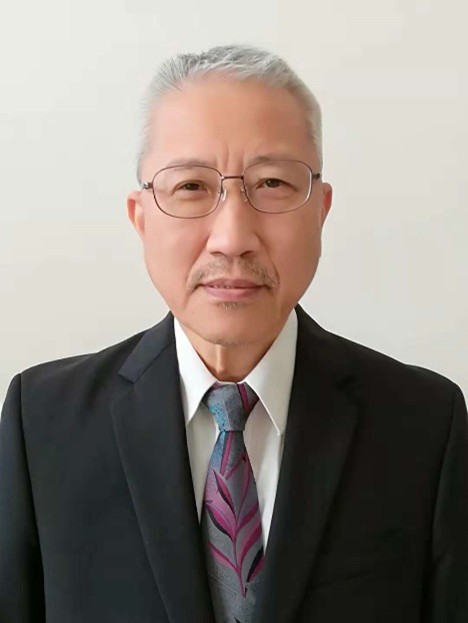Keynotes
Impact of AI on human life and the road to AI education
The work of H. Anthon Chan had spanned through different areas in both industry and academia. After receiving his PhD in Physics at University of Maryland, he continued basic science research there until he joined the former AT&T Bell Labs in 1986 to conduct industry research when his work on product reliability had filled the gap in formulation for stress testing to be adopted by major electronics manufacturers. He then worked on wireless network management, and he then represented AT&T in 3GPP standards in 2000. He joined the EE Dept at University of Cape Town in 2003 to establish research and curriculum in telecommunication networking. He joined the Wireless US Lab of Huawei Technology in2007 to conduct 5G Wireless technology and represent Huawei USA Lab in Internet standards. He is now Dean of Yam Pak School of Computing and Information Sciences at Saint Francis University, where he stared in 2019 to establish research and curriculum in AI. The School had since begun offering a comprehensive AI curriculum in a BScAI degree program in 2020 and added a comprehensive metaverse curriculum in its BSc in Digital Entertainment Technology in 2023. Prof. Chan had been a Distinguished Speaker of IEEE Communication Society, IEEE Reliability Society, and IEEE CPMT Society, respectively. He had authored/co-authored over 270 journal/conference papers, a research handbook, 5 book chapters, and 30 US patents. He had delivered 20 keynotes/invited talks and over 44 tutorials and short courses at international conferences.
Abstract
The deep learning breakthroughs in image processing and natural language processing and the subsequent rapid progresses in both deep learning and generative AI have penetrated almost all other fields as well as daily life use. Many companies, countries or cities have increased investment in AI to revolutionize their products and services. It is already clear that products and services with AI are more competitive so that their future businesses are counting on AI to become the winner. Else, one risks becoming the loser. The changes with AI to human society and in general use provide no return path for Human race. In education, the question is not just whether or not but how to establish AI education. AI is becoming part of literacy, when developing countries will need to overcome not just Digital Divide but also “AI-Divide.” As AI continues to outdate many existing products, how to responsibly harness AI to benefit humanity rather than creating more security and also morality problems.

Prof. H. Anthony Chan
IEEE live-Fellow

Nicos Maglaveras
Professor of Medical Informatics Aristotle University of Thessaloniki Greece
Personalised health driven by digital health systems and multi-source health/environmental data, ML/AI/DL analytics and predictive models
Nicos Maglaveras received the diploma in electrical engineering from the Aristotle University of Thessaloniki (A.U.Th.), Greece, in 1982, and the M.Sc. and Ph.D. degrees in electrical engineering with an emphasis in biomedical engineering from Northwestern University, Evanston, IL, in 1985 and 1988, respectively. He is currently a Professor of Medical Informatics, A.U.Th. He served as head of the graduate program in medical informatics at A.U.Th, as Visiting Professor at Northwestern University Dept of EECS (2016-2019), and is a collaborating researcher with the Center of Research and Technology Hellas, and the National Hellenic Research Foundation.
His current research interests include biomedical engineering, biomedical informatics, ehealth, AAL, personalised health, biosignal analysis, medical imaging, and neurosciences. He has published more than 500 papers in peer-reviewed international journals, books and conference proceedings out of which over 160 as full peer review papers in indexed international journals. He has developed graduate and undergraduate courses in the areas of (bio)medical informatics, biomedical signal processing, personal health systems, physiology and biological systems simulation.
He has served as a Reviewer in CEC AIM, ICT and DGRT D-HEALTH technical reviews and as reviewer, associate editor and editorial board member in more than 20 international journals, and participated as Coordinator or Core Partner in over 45 national and EU and US funded competitive research projects attracting more than 16 MEUROs in funding. He has served as president of the EAMBES in 2008-2010. Dr. Maglaveras has been a member of the IEEE, AMIA, the Greek Technical Chamber, the New York Academy of Sciences, the CEN/TC251, Eta Kappa Nu and an EAMBES Fellow.
Abstract
The last years saw a steep increase in the number of wearable sensors and systems, mhealth and uhealth apps both in the clinical settings and in everyday life. Further large amounts of data both in the clinical settings (imaging, biochemical, medication, electronic health records, -omics), in the community (behavioral, social media, mental state, genetic tests, wearable driven bio-parameters and biosignals) as well as environmental stressors and data (air quality, water pollution etc.) have been produced, and made available to the scientific and medical community, powering the new AI/DL/ML based analytics for the identification of new digital biomarkers leading to new diagnostic pathways, updated clinical and treatment guidelines, and a better and more intuitive interaction medium between the citizen and the health care system.
Thus, the concept of connected and translational health has started evolving steadily, connecting pervasive health systems, using new predictive models, new approaches in biological systems modeling and simulation, as well as fusing data and information from different pipelines for more efficient diagnosis and disease management.
In this talk, we will present the current state-of-the-art in personalized health care by presenting cases from COVID-19 and COPD patients using advanced wearable vests and new technology sensors including lung sound and EIT, new outcome prediction models in COVID-19 ICU patients fusing X-Rays, lung sounds, and ICU parameters transformed via AI/ML/DL pipelines, new approaches fusing environmental stressors with -omics analytics for chronic disease management, and finally new ML/AI-driven methodologies for predicting mental health diseases including suicidality, anxiety, and depression.

